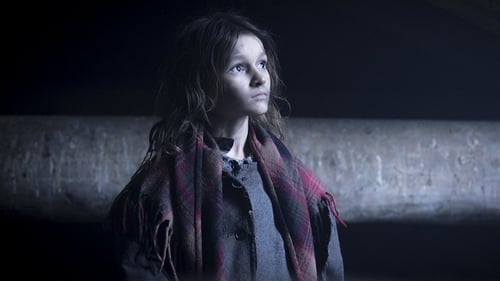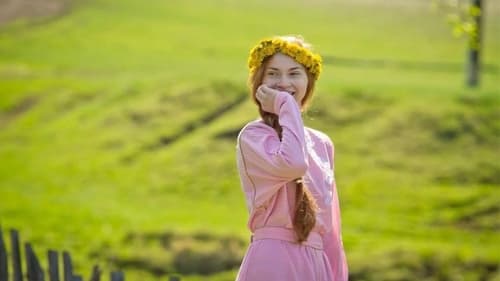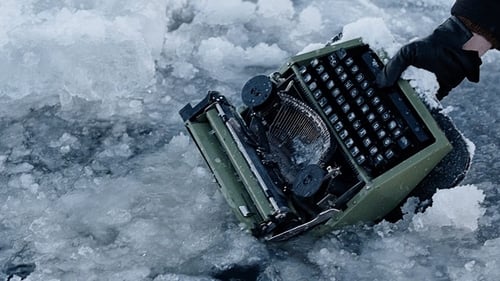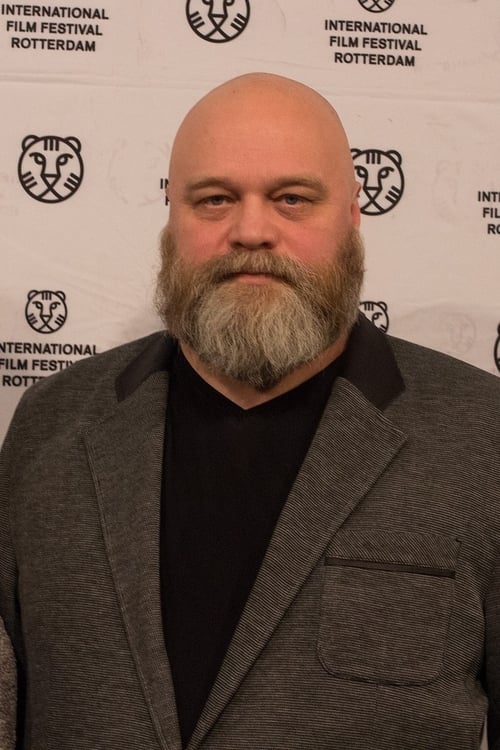Aleksey Fedorchenko
出生 : 1966-09-29, Sol-Iletsk, Orenburg, USSR [now Russia]
略歴
Director of fiction and documentary cinema, scriptwriter, producer. Born in Sol-Iletsk, Orenburg
region, in 1966. Graduated from the Engineering and Economics Faculty of the Ural Polytechnic (1988); from script faculty of the Film Institute VGIK (2000, class of V. Chernykh, L. Kozhinova and Yu. Rogozin). Since 1990 has worked at the Sverdlovsk film studio, since 2005 he is producer and director of the film company “29 February”. Debuted in feature films in 2005 with “First on the Moon”.
His works have been awarded prizes at the largest national and international festivals, such as Venice and Rome IFF, IFF Black Nights, and Kinotavr.

The film is about the relations between the inhabitants of Russia and the Caucasus, and about their influence on each other. Young Georgian Georgi Iobadze tells the audience the story of the Vainakhs (a group of peoples of the North Caucasus and Georgia) in the period from 1813 to 1913.

Producer
The film is about the relations between the inhabitants of Russia and the Caucasus, and about their influence on each other. Young Georgian Georgi Iobadze tells the audience the story of the Vainakhs (a group of peoples of the North Caucasus and Georgia) in the period from 1813 to 1913.

Screenplay
The film is about the relations between the inhabitants of Russia and the Caucasus, and about their influence on each other. Young Georgian Georgi Iobadze tells the audience the story of the Vainakhs (a group of peoples of the North Caucasus and Georgia) in the period from 1813 to 1913.

Director
The film is about the relations between the inhabitants of Russia and the Caucasus, and about their influence on each other. Young Georgian Georgi Iobadze tells the audience the story of the Vainakhs (a group of peoples of the North Caucasus and Georgia) in the period from 1813 to 1913.

Director
Next July Altai will again drown in the sea of love for the famous countryman – Vasily Makarovich Shukshin. Altaians will celebrate his next birthday.

Producer
Film about the life of a modern Siberian Tatar village on a forgotten stretch of the Silk Road.

Producer
1943 year. Alma-Ata. The hero of the film is a young Michurin fruit grower who revives a medicinal apple variety and investigates a strange crime. The script was written based on the book by Mikhail Zoshchenko "Before the Sunrise".

Screenplay
1943 year. Alma-Ata. The hero of the film is a young Michurin fruit grower who revives a medicinal apple variety and investigates a strange crime. The script was written based on the book by Mikhail Zoshchenko "Before the Sunrise".

Director
1943 year. Alma-Ata. The hero of the film is a young Michurin fruit grower who revives a medicinal apple variety and investigates a strange crime. The script was written based on the book by Mikhail Zoshchenko "Before the Sunrise".

Screenplay
Documentary comedy about how the movie was filmed on the provincial studio in the mid-nineties.

Director
Documentary comedy about how the movie was filmed on the provincial studio in the mid-nineties.

Screenplay
The entire family of a 6-year-old Anna dies in the mass coordinated execution of Jews. The mother covers up Anna with her own body, and the girl miraculously survives. For the next few hundred days Anna hides in the disused chimney at the Nazi Commandant's office. From her shelter she watches as life passes her by until the village is liberated from the Nazi. In these inhuman conditions Anna not only survives but keeps her humanity. Many factors help her: memories from the life swept away by war, the cultural foundations laid by the parents and a friend who saves her from loneliness.

Director
The entire family of a 6-year-old Anna dies in the mass coordinated execution of Jews. The mother covers up Anna with her own body, and the girl miraculously survives. For the next few hundred days Anna hides in the disused chimney at the Nazi Commandant's office. From her shelter she watches as life passes her by until the village is liberated from the Nazi. In these inhuman conditions Anna not only survives but keeps her humanity. Many factors help her: memories from the life swept away by war, the cultural foundations laid by the parents and a friend who saves her from loneliness.

Director
A short film omnibus featuring the work of five directors representing five countries involved in the 2017 BRICS summit, an annual international relations conference held between Brazil, Russia, India, China and South Africa. The collection—taking the concept of time as a unifying theme—depicts the economic, political, and social alienations and contradictions that create, compound, and structure issues as wide-ranging as poverty, class stratification, and homeless; familial distress; spousal abuse; and natural disaster.

Production Design
Five friends – a poet, an actor, a painter, an architect and a primitivist film director – are five red avant-garde artists who try to find the embodiment of their hopes and dreams in the young Soviet state. The Revolution is boiling up like a bottle with apple cider: winged service dogs and heart-shaped potatoes, dead Semashko, the People’s Commissar for Health, and cheerful angels, love for the Tsar and love for the young secretary Annushka, executions and pregnancies – everything is interlaced and inseparable!

Producer
Five friends – a poet, an actor, a painter, an architect and a primitivist film director – are five red avant-garde artists who try to find the embodiment of their hopes and dreams in the young Soviet state. The Revolution is boiling up like a bottle with apple cider: winged service dogs and heart-shaped potatoes, dead Semashko, the People’s Commissar for Health, and cheerful angels, love for the Tsar and love for the young secretary Annushka, executions and pregnancies – everything is interlaced and inseparable!

Writer
Five friends – a poet, an actor, a painter, an architect and a primitivist film director – are five red avant-garde artists who try to find the embodiment of their hopes and dreams in the young Soviet state. The Revolution is boiling up like a bottle with apple cider: winged service dogs and heart-shaped potatoes, dead Semashko, the People’s Commissar for Health, and cheerful angels, love for the Tsar and love for the young secretary Annushka, executions and pregnancies – everything is interlaced and inseparable!

Director
Five friends – a poet, an actor, a painter, an architect and a primitivist film director – are five red avant-garde artists who try to find the embodiment of their hopes and dreams in the young Soviet state. The Revolution is boiling up like a bottle with apple cider: winged service dogs and heart-shaped potatoes, dead Semashko, the People’s Commissar for Health, and cheerful angels, love for the Tsar and love for the young secretary Annushka, executions and pregnancies – everything is interlaced and inseparable!

Driver
By My Side is a poetic meditation on our inability to notice the most important thing in live: love. It is an exploration of our tendency to hide from love and bar it from our lives; to unknowingly push it away, bewildered by our own feelings, even when it appears in the guise of a regular, flesh-and- blood woman. And yet, it always comes back...

Location Manager
By My Side is a poetic meditation on our inability to notice the most important thing in live: love. It is an exploration of our tendency to hide from love and bar it from our lives; to unknowingly push it away, bewildered by our own feelings, even when it appears in the guise of a regular, flesh-and- blood woman. And yet, it always comes back...

Producer
For some, "Both Two" is the flagship of modern pop-rock music, while others will say that these five are not much different from millions of the same young fashionable bands. Talented guys were born in a distant Siberian city, and in the heart of the Urals they met a beautiful red-haired girl. They had a band. The group has its own unique character.

Director
Made for the Venice Film Festival's 70th anniversary, seventy filmmakers made a short film between 60 and 90 seconds long on their interpretation of the future of cinema.

Producer
This is a collection of portraits: 23 short stories about the Marij women, a sort of Decameron suspended between magic and realism, in which the Autonomous Republic of the Marij El serves as a backdrop for the collective history of a people of ancient tradition. A journey into a mysterious and unknown part of the world.

Director
This is a collection of portraits: 23 short stories about the Marij women, a sort of Decameron suspended between magic and realism, in which the Autonomous Republic of the Marij El serves as a backdrop for the collective history of a people of ancient tradition. A journey into a mysterious and unknown part of the world.

Director
Created under a “manifesto” whose directives would make Lars von Trier shudder, this three-part film might look on paper like an exercise in forced hipness. Fortunately, its directors – Harmony Korine (USA), Alexsei Fedorchenko (Russia) and Jan Kwiecinski (Poland) – prove innovative and just insane enough to make The Fourth Dimension an exhilarating experiment.

Director
A man and his companion go on a journey to cremate the body of the former's beloved wife on a riverbank in the area where they spent their honeymoon.

Producer
Mischa, a mute boy, sets out on a surrealistic journey together with his father and two men. Their means of transportation is an old Soviet locomotive, loaded with stolen coal. The travellers intend to sell off the loot on their way through the borderless steppes of inner Russia. As a parallel to the main plot, sequences of a mysterious travelling circus keep reappearing in a very suggestive way. Many of the odd artists at the circus are people that the four protagonists encounter in the wilderness along the overgrown railway. All through the movie there is a sensation of magic crossed with pure realism, stressed by the crackling communistic infrastructure and a twisted sense of humor. The border between reality and fantasy is very subtle here. The Railway is a story about strong family ties, but also an ambitious interpretation of the clash between the Russia of old and new. One could call it the rebirth of a long forgotten genre: the Russian wonder story.

Director
Mischa, a mute boy, sets out on a surrealistic journey together with his father and two men. Their means of transportation is an old Soviet locomotive, loaded with stolen coal. The travellers intend to sell off the loot on their way through the borderless steppes of inner Russia. As a parallel to the main plot, sequences of a mysterious travelling circus keep reappearing in a very suggestive way. Many of the odd artists at the circus are people that the four protagonists encounter in the wilderness along the overgrown railway. All through the movie there is a sensation of magic crossed with pure realism, stressed by the crackling communistic infrastructure and a twisted sense of humor. The border between reality and fantasy is very subtle here. The Railway is a story about strong family ties, but also an ambitious interpretation of the clash between the Russia of old and new. One could call it the rebirth of a long forgotten genre: the Russian wonder story.

Director
In spring 1938 in the mountains in the north of Chile a fiery UFO, later named "Chilean Sphere ", fell down. The investigation of this episode, made by a film crew, has led to a sensational discovery. It appeared that before the Second World War (in the thirties) in the USSR a secret space program had been developed. The Soviet scientists and military authorities managed to launch the first spacecraft 23 years prior to Jury Gagarin's flight! "The First on the Moon" tells about everyday life, heroic deeds and tragedy of the first group of the Soviet cosmonauts. It is the first Russian film shot in a very rare genre 'mockumentary' or 'documentary fiction'.

Producer
A two-story house on the former Sverdlovsk outskirts has cracked in half. A crack two fists wide passed exactly in the middle. The residents of the house are fighting for their happiness in various ways, some are dying. For example, an artist has died. He managed to draw a film, his son, Ilya, sang a movie, and the film crew only had to shoot the "First Movie".

Producer
"David" is the story of a Jewish boy from Minsk, David Levin, who went through the press of the state machines of Nazi Germany, the Soviet Union, England, France, and even Israel and did not break down, but retained his humanity, kindness to the world.

Screenplay
"David" is the story of a Jewish boy from Minsk, David Levin, who went through the press of the state machines of Nazi Germany, the Soviet Union, England, France, and even Israel and did not break down, but retained his humanity, kindness to the world.

Director
"David" is the story of a Jewish boy from Minsk, David Levin, who went through the press of the state machines of Nazi Germany, the Soviet Union, England, France, and even Israel and did not break down, but retained his humanity, kindness to the world.

Producer
Outside the gates of the psychiatric hospital was 40-years-male with the development of 10-year-old child nicknamed Baby. In his pocket he had a ticket on the train, in the hands of the suitcase. But he can't get far. At the station when boarding the train, he immediately gets into trouble and loses his suitcase. At the same time he still gets from the police. Two teenagers, a brother and sister — kit and Alenka, left without a home and without parents, living in an old abandoned railway car, let him spend the night. The kid is sincerely attached to them and begins to take an active part in their hard free homeless life.








